Carrie's Success at NEC
In this year's National Economics Challenge, Carrie H, our Y13 student, distinguished herself with outstanding performances. She achieved the Outstanding Students in Qualifying Test – 2nd Place and the Overall Team Awards- Gold. This series of NEC competitions not only tested her knowledge and analytical abilities in economics but also showcased her poise and adaptability under pressure. To gain insight into her extraordinary journey and experiences in this international competition, we invited her to share her valuable insights with us.
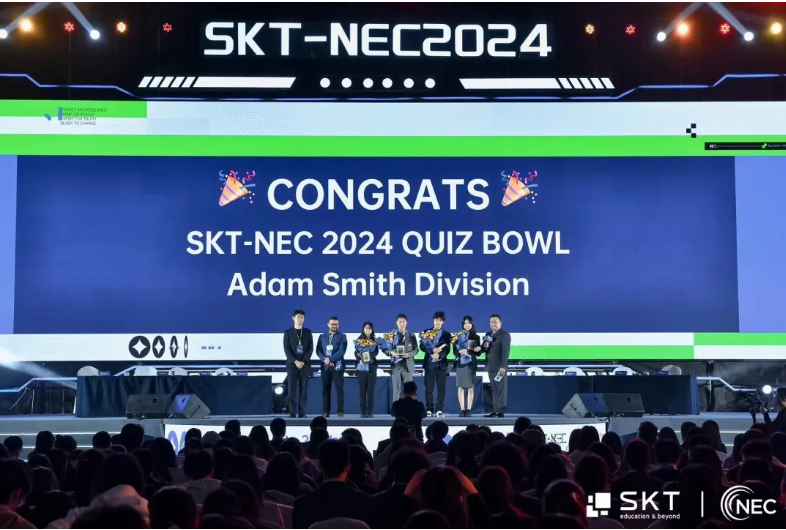
About National Economics Challenge
NEC is the most influential economics competition for high school students in the US, organised by the Council for Economic Education (CEE). Since 2000, this event has attracted over 20,000 young economists annually, covering more than 400 schools nationwide. The competition is divided into three categories: PRE, DR, and AS. It includes multiple rounds, such as Qualifying Test, Critical Thinking, Super Econ and Quiz Bowl, comprehensively assessing students' knowledge of economics, logical analysis, teamwork, and on-the-spot problem-solving skills.
Q1: Could you share your experience of participating in the NEC? Were there any particularly critical or memorable moments?
A:The competition consisted of three rounds: the first round was the preliminary in China last December, where approximately 60% of participants were eliminated; the second round was the China finals in March, where our team secured second place nationwide. Finally, we travelled to HK in August for the global finals.
The most memorable moment was during the Quiz Bowl in the China finals. As the second-ranked team in China, we had to compete against the top-ranked team in a buzzer round in front of thousands of spectators. Upon learning we were to enter this round, we practised overnight. Unlike the usual process of reading and answering questions, the Quiz Bowl required us to stay highly focused while listening to questions and to react quickly. Although I advised my teammates not to rush, I ended up being the most eager during the competition, with the host joking that I nearly broke the buzzer! Although the Quiz Bowl scores didn’t count towards the overall score, our overwhelming victory over the champion team was exciting. This match even led students from other schools came up to me after the game and asked me to share my experience.
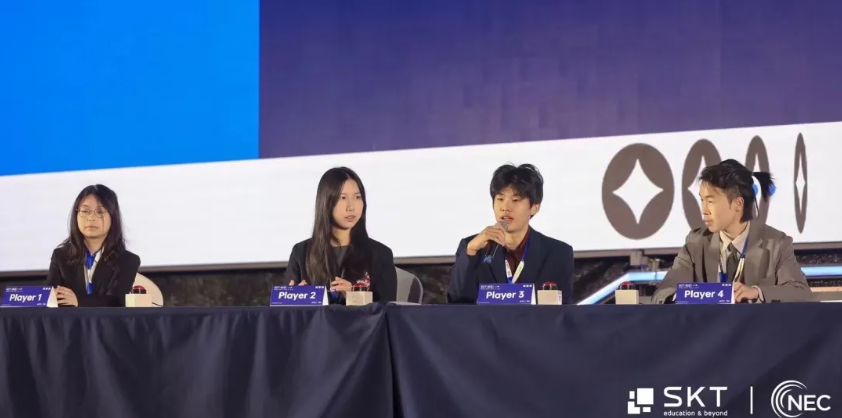
Q2:What challenges did you face during the competition, and how did you overcome them?
A:Throughout the competition, the Critical Thinking round presented a significant challenge, particularly in the global finals. We were required to complete a presentation within 25 minutes without internet access. Delivering a clear and coherent argument to the judges in such a short time without any preparation demanded strong logical thinking and oral presentation skills.
In the global finals in HK, our competitors were exceptionally formidable, especially the American team, which included two Stanford freshmen and one Harvard student. Therefore, our victory over them to win first place was incredibly thrilling.
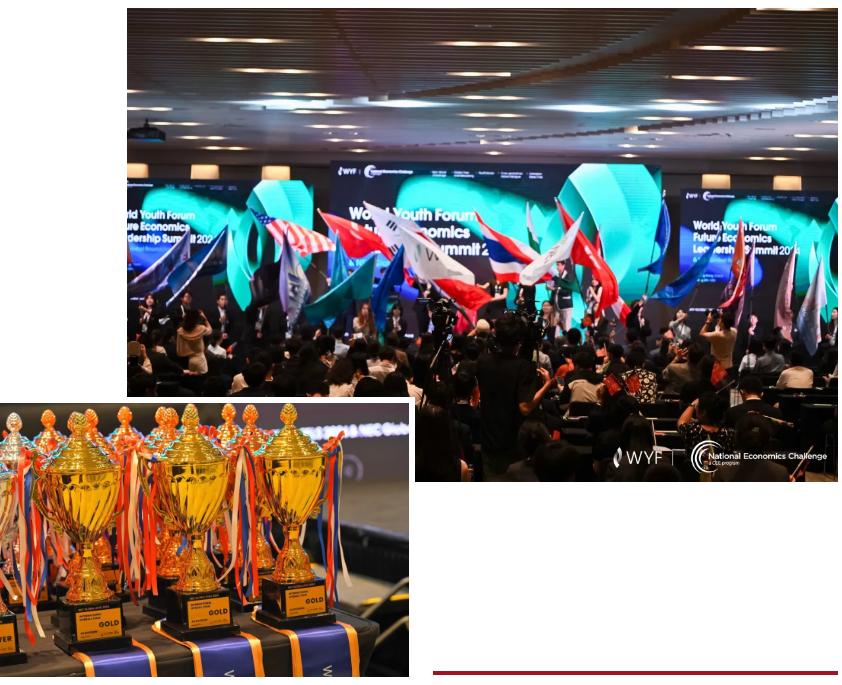
Q3:How did your team collaborate during the competition?
A:Our team was very cohesive. Even for the individual objective question sections, we revised the content together, dividing the chapters among us and discussing them before the exams. For the subjective question sections, we split the tasks according to the circumstances and worked together to draft the essay. Prior to the global finals, we conducted several practice sessions, writing and presenting on different case studies, which helped us to analyse and discuss various scenarios.
Q4:What study methods and strategies did you use to stand out during the preparation and competition?
A:During preparation, I discovered that the competition content extended beyond the curriculum, necessitating independent learning. I completed the AP Macroeconomics and Microeconomics courses through self-study during the summer break in Year 10. For challenging topics, I actively sought discussions with my economics teacher, who used examples to help me grasp abstract concepts and encouraged me to explore deeper content.
In the Critical Thinking round of the global finals, we had just one week to prepare, but we also had to manage our schoolwork, so we could only have group meetings in the evenings. Since all competitors had the same preparation time, we applied advanced knowledge and skills, suchas Two-Sided Model and ISLM models, typically covered in the first year of university. This allowed us to stand out in the competition by applying these concepts flexibly.
Q5:In a previous interview, you mentioned that the Marquette Liberal Arts course at DHSZ required you to write essays on international topics (read more). How did your developed critical thinking and global perspective help you in the competition?
A:The Liberal Arts course was very helpful to me. Additionally, the essay-based Economics and English Literature courses at school required us to refine our writing repeatedly, significantly improving my writing and critical thinking skills. For example, my economics teacher frequently encouraged us to follow current events and find real-world cases where we could apply theoretical knowledge. In this competition’s case study round, we discussed how AI impacts global resource distribution and economic inequality. Whether in the classroom or in external competitions, these experiences complemented each other, helping me further develop my skills.
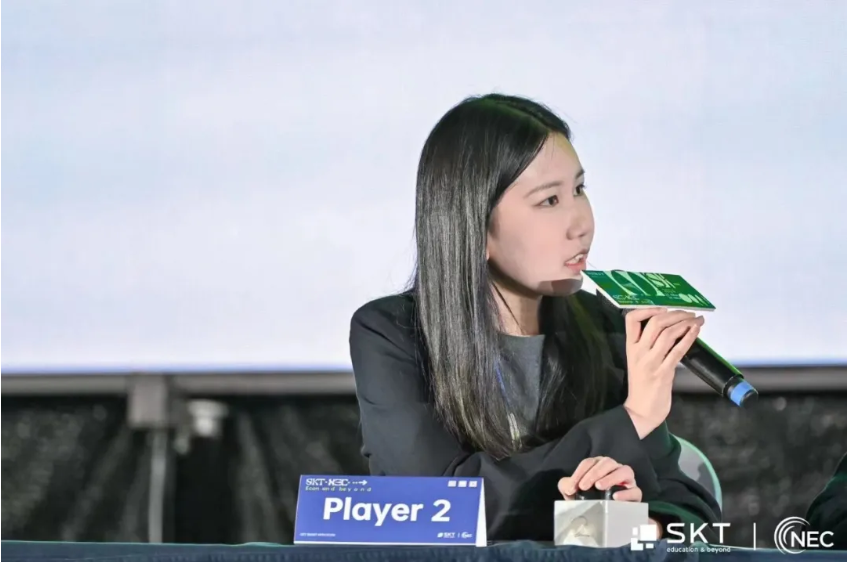
Q6:What does winning first place as a team and second place individually in the global finals mean to you? What have you gained from this experience?
A:This competition marked a perfect conclusion to my high school competition journey. While the competition results certainly enhance my resume and personal statements, more importantly, I gained extensive extracurricular knowledge, met many outstanding peers, and learned valuable lessons and diverse perspectives from them. My time management skills also improved significantly. The time spent with my teammates after the competition was particularly memorable because we shared many challenges and intellectual exchanges, which contributed to our growth.
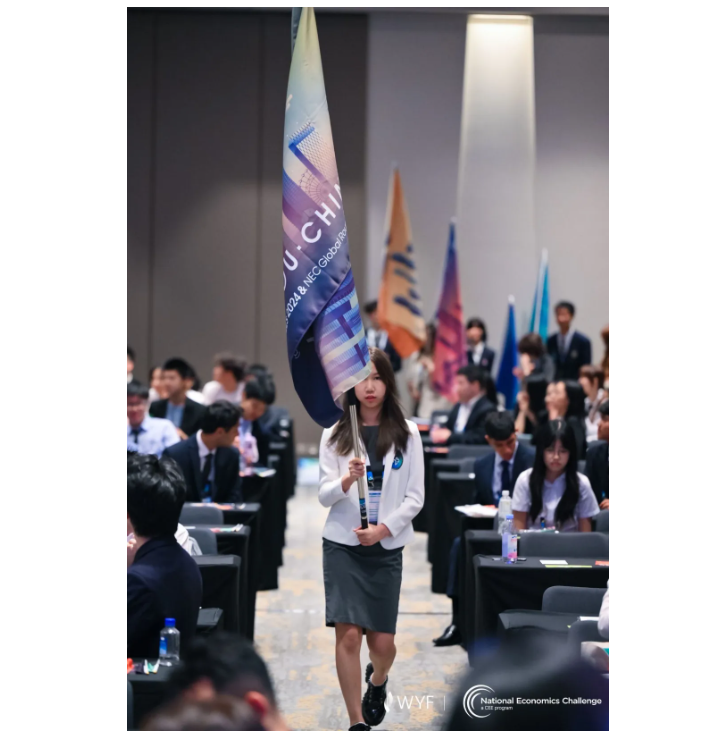
Q7:How has this success influenced your future academic or career plans? Will you continue to pursue economics?
A:I have always been passionate about economics, which is why all my academic activities during high school have revolved around it. This competition further solidified my love for the subject. However, I am also considering pursuing a double major in the future because I believe economics has certain limitations. I might choose Public Policy as a complementary discipline to broaden my academic horizons.
Q8:What advice do you have for students interested in participating in economics competitions?
A:For students who love economics or are interested in participating in the NEC, I recommend self-studying some economics knowledge in advance, as I did, through online courses or books. They should also be prepared for the time commitment required by the competition and consider whether they are willing to invest such significant effort into this subject. This year, with the help of Ms Eileen Law, I will also establish an NEC CCA (Co-Curricular Activity), with the aim of sharing NEC-related experience. All interested students are welcome to join.






